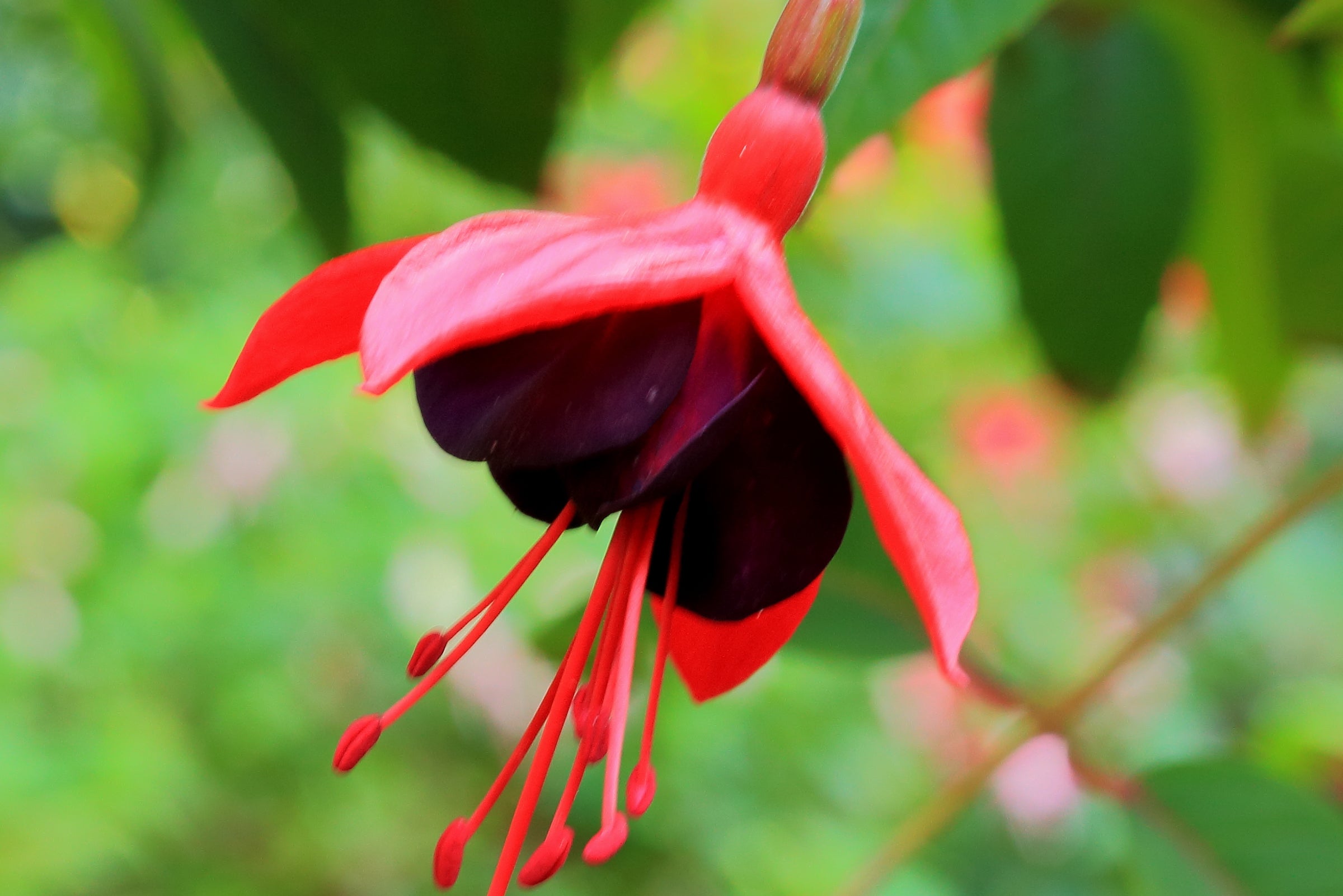Fuchsia 'Lady Boothby'
Approx. 0.5 litre pot
About this cultivar:
Fuchsia 'Lady Boothby' is an extremely vigorous cultivar with upright growth which needs to be tied in and pinched back to keep in check. Relatively small, crimson and dark purple flowers. Can be trained much like a climber. It was bred from an original Brazilian species in 1939 and named after the founder of the British Fuchsia Society.
- Position: Full sun, partial shade
- Soil: Almost any soil, grows well in Ballyrobert
- Flowers: July, August, September, October
- Other features: Grows well in Ballyrobert, Royal Horticultural Society Award of Garden Merit (RHS AGM)
- Hardiness: H4 - Hardy through most of the UK (-10 to -5°C), Fully hardy - grows well in Ballyrobert!, Fully hardy - grows well in Ballyrobert!
- Habit: Clump forming, bushy
- Foliage: Deciduous
- Height: 250 - 400 cm (8.5 - 13.5 ft)
- Spread: 100 - 150 cm (3.5 - 5 ft)
- Time to full growth: 2 to 5 years
- Plant type: Herbaceous Perennial
- Colour: Green, purple, red
- Goes well with: Everything!
About this genus:
Fuchsia (few-che-a) is a genus of flowering plants that consists mostly of shrubs or small trees. There are over 110 recognized species. The first, Fuchsia triphylla, was discovered on the Caribbean island of Hispaniola (present day Dominican Republic and Haiti) about 1696 by the French monk and botanist, Charles Plumier during his third expedition to the Greater Antilles. He named the new genus after the renowned German botanist Leonhart Fuchs.
The Fuchsias we grow and sell are perennial and hardy - they are all growing away in our own garden. They are easy to grow once they are established - they will take almost any situation or soil that isn't too extreme. They provide continual flowers from July until late autumn, when the first frosts arrive. They come into their own in autumn because they enjoy cooler temperatures and shorter days. The Autumn light also enhances the rich mixture of pinks, reds, peaches and whites in the garden. Eventually most will die back for the winter - usually when a hard frost kills the upper part of the plant, however they will start growing from the base again when the next spring comes!
Fuchsias are versatile plants - although not native they have naturalized in many parts of this world, for instance along the beautiful Antrim Coast. They can often been seen growing wild. It is for this reason that I like them poking in and around hedges for a natural look. However the common use is as stand alone specimen plant - it is really up to you!


